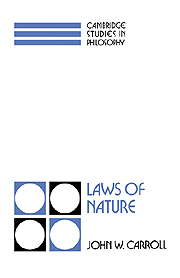Chapter 3 - Humean supervenience
Published online by Cambridge University Press: 12 January 2010
Summary
There is a new panacea in philosophy. Faced with the failure to legitimize certain realist practices by producing a suitable analysis, say, of ethical concepts in terms of purely natural ones or mental concepts in terms of purely physical ones, many have clung to supervenience. One particularly famous use of a supervenience notion occurs in G. E. Moore's ethical theory. Of intrinsic value, he says, “It is impossible that of two exactly similar things one should possess it and the other not, or that one should possess it in one degree, and the other in a different one” (1958 [f.p. 1922], p. 261). More recently, as Jaegwon Kim points out, many have thought that psychophysical supervenience “acknowledges the primacy of the physical without committing us to the stronger claims of physical reductionism” (1984, pp. 155–156). Though there are many different treatments of supervenience, the concept is almost always spelled out in modally rich terms and is usually taken to describe a deep metaphysical dependency.
Because of the criticisms raised in the previous chapter, from any perspective even scarcely resembling empiricism, the last hope of maintaining a realism about laws is the hope of upholding that lawhood somehow supervenes on a suitably wholesome base. Given the desire to account for lawhood in thoroughly unobjectionable terms, the natural position for Humeans to adopt is that no two possible worlds have propositions that agree on their features free of nomic commitments and disagree on their status as laws.
- Type
- Chapter
- Information
- Laws of Nature , pp. 57 - 85Publisher: Cambridge University PressPrint publication year: 1994



